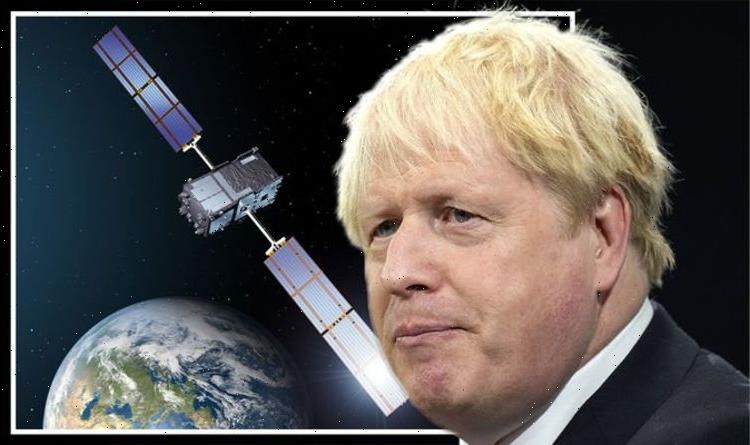Galileo: David Morris outlines UK’s role in project
We use your sign-up to provide content in ways you’ve consented to and to improve our understanding of you. This may include adverts from us and 3rd parties based on our understanding. You can unsubscribe at any time. More info
The hunt for Britain’s own satellite tracking and positioning system has so far procured about 10 options, some of which will be presented to the Government in November. After former prime minister Theresa May pulled out of the EU’s signature GNSS in 2018, her government announced plans to investigate the feasibility of Britain launching its own alternative. The British GNSS would have provided critical systems to the Armed Forces, help guide military drones and “provide essential services” for the public’s smartphone devices.
The scheme was scrapped in 2020 and was replaced by the United Kingdom Space-Based Positioning, Navigation and Timing Programme (UK SBPNTP).
According to BBC science correspondent Jonathan Amos, the search has recently narrowed down the field from about 35 options to about 10.
Mr Amos spoke to Tim Guy, who is in charge of the UK Space Agency’s SBPNTP review, at the UK Space Conference last week.
He tweeted: “His November report will narrow the field further still.”


Following Britain’s departure from Galileo, a report from the Government Office for Science warned about the “vital importance” of improving the UK’s position, navigation and time-dependant (PNT) services.
The report read: “Our science base has broad expertise in the disciplines that are driving research and development in high-integrity position, navigation and time (PNT).
“We are home to pioneering satellite companies as well as firms offering world-leading PNT technologies and services.
“We should take full advantage of these skills and experience to ensure that we improve our resilience to disruption.”
The report also warned about the dangers of GNSS being knocked by, for example, extreme space weather phenomena.
Brexit: Expert discusses future of Galileo space project
GNSS tools are critical for national security and maritime safety, as well as for sat-nav technology.
But all satellite technology and spacecraft are particularly susceptible to solar storms and radiation that can fry electronics and disrupt communications.
According to Mr Guy, the economic impact of the UK suffering a GNSS outage could cost the Government up to £1.7billion every single day.
The staggering figure rose on the original estimates published by the SBPNTP review in 2018.
Mr Guy was quoted saying: “We refreshed [the estimates] as part of our business casework.


“It was £1.4billion a day impact, it’s now £1.7billion per day.
“That’s just the economic impact.”
The figures were based on estimates by the London Economics consultancy group, which specialises in the space industry and economy.
Mr Amos said: “The newspapers like to bang on about sovereignty, but they should be using words like ‘resilience’ and ‘redundancy’ just as often.
“If you’re dependent on a system and it falls over, the economic fallout doesn’t change just because you own that system.”
A number of options for a Galileo replacement have already cropped up, including the OneWeb low-Earth orbit (LEO) satellite constellation.
Although the OneWeb constellation will primarily serve as a broadband system, OneWeb is said to be looking into the possibility of providing PNT services as well.
The company was propped up by a £364million ($500million) investment from the Government after filing for bankruptcy.
The Government is now a OneWeb stakeholder alongside the Indian company Bharti Global.
Source: Read Full Article
